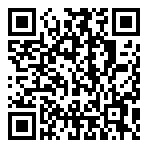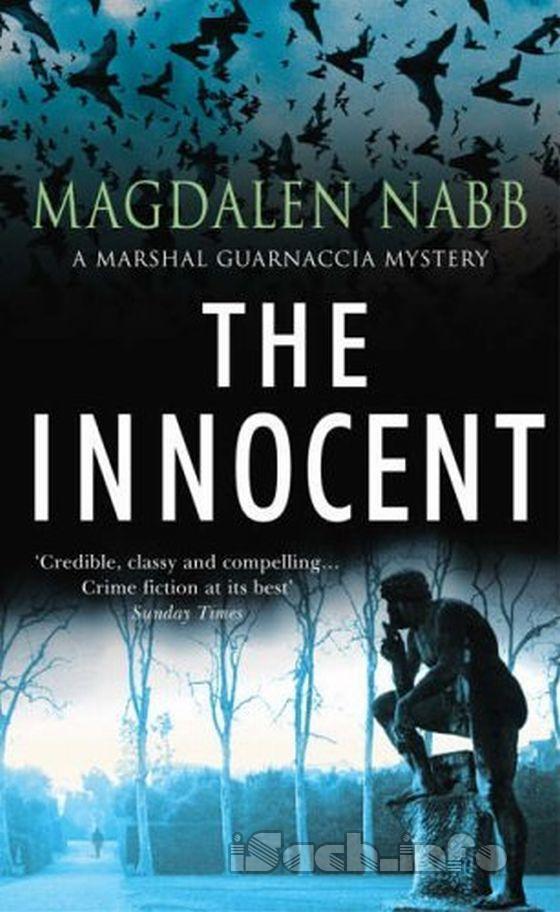Chương 48
R
OBIE STOOD NEAR what was, for him, ground zero.The remains of the bus were being sifted through by a dozen forensics techs, with an FBI evidence truck waiting nearby to take these items away to the lab. Just like at Donnelly’s, roadblocks were everywhere, holding back the reporters who wanted to see and know everything right now.
He looked left and right, up and down. Vance was correct; nothing obvious that he could see. The bank video across the street was already in the database but thankfully also had been knocked out by the blast. He gazed upward. Surveillance camera about ten feet off the ground at the corner of one intersection. It was pointing downward and had gotten a shot of the bus as well. If it had been pointed a bit differently, it might have captured on film both him and Julie as they escaped.
Like football, a game of inches. Some things were just beyond your control. Then you counted on luck.
But how much more luck can I count on?
His attention turned to the troublesome part of the street, the side he and Julie had been on. He started to walk. With the angle of coverage a camera might have on the street, he gauged what his box of concern should be and added ten percent on each end just to be safe. He covered this ground methodically.
He quickly registered on a camera posted on the wall about twenty feet to the left of where the bus had gone down. It seemed to be pointing directly at the spot of the explosion. He looked at the business located there.
Bail bondsman. Of course. In this neighborhood the owner probably had a ready group of customers. He looked through the plate glass window with rusted iron bars in a crisscross pattern fronting it.
The sign to the right of the door said, “Ring Bell.”
Robie rang the bell.
A voice came out of a small white box set to the door.
“Yeah?”
“Federal agent. Need to talk to you.”
“So talk.”
“Face-to-face.”
Robie heard footsteps approaching. A short, wide man in his fifties with more white hair in a mustache over his lip than on his head looked out at him through the window.
“Let me see your badge.”
Robie pressed it against the glass.
“DCIS?”
“Part of DOD. Military.”
“What do you want with me?”
“Open the door.”
The man pulled the heavy door open. He was dressed in black slacks and a white shirt with the sleeves rolled to his elbows. Above his loafers Robie saw pink skin.
Robie stepped through and closed the door behind him.
“So what do you want?” the man asked again.
“The bus that blew up across the street?”
“What about it?”
“You have a surveillance camera.”
“Right, so?”
“FBI been by to see you about it yet?”
“No.”
“I’m going to have to confiscate the film or DVD or whatever you use to house the images captured by the camera.”
“That would be nothing.”
“What?”
“That camera hasn’t worked for a year. Why do you think I had to come to the window to see who it was at the door, smart guy?”
“So why leave it up?”
“As a deterrent, why else? This is not exactly a safe area.”
“I’ll still need to see for myself.”
“Why?”
“Smart guys like to cover all the bases.”
However, it turned out the man was telling the truth. The system had evidently been broken a long time, and when he examined the camera Robie saw that the cable running to it inside the building wasn’t even connected.
Robie left and continued his walk.
He had nearly gotten to the end of the sector he’d outlined when he saw the homeless guy from the night the bus had exploded, the one who’d been dancing around yelling about wanting some s’mores to grill on the bonfire of metal and flesh. It looked like he and his fellow homeless had been evicted from the crime scene and were huddled on the other side of the police barriers. There were three of them, each with their trash bags filled, no doubt, with everything they possessed.
The homeless guy looked like he’d been on the streets for a long time. His clothes and body were filthy. His fingernails were long and blackened and his teeth rotted. Robie could see that the reporters were giving the three a wide berth. He wondered if it had occurred to any of the journalists that the people of the streets might have seen something that night. Even so, Robie wondered how successful the reporters might have been in getting any reliable information out of them.
And then he wondered if the FBI had attempted to interview them. Vance’s folks might not have even known they were there that night. Might not know that they could possess valuable information. And also some information that could be quite damaging to Robie.
Robie cleared the police barrier and was immediately engulfed by reporters. He looked at none of them, made no attempt to answer their shouted questions. He pushed mikes and notepads out of his face and kept going until he reached the three street people.
“You hungry?” he asked.
The s’mores fellow, wild-eyed and looking as though reason had left him long ago, nodded and laughed. “Always hungry.”
At least he can understand me, thought Robie. He eyed the other two. One was a woman, small, bloated, blackened by the street. Her garbage bag bulged with blankets and what looked to be recycled trash. She might have been twenty, she might have been fifty, Robie couldn’t tell under the layers of grime. “You hungry?”
She just looked at him. Unlike S’mores, she apparently didn’t understand English.
He led them farther away from the sea of reporters and then glanced at the third person. She looked more promising. About forty, she did not have years on the street grafted onto her. And there was both intelligence and terror behind her eyes. Robie wondered if the recent economic crisis had left her as one of the new millions who were once working- or middle-class, but now were neither. “Can I get you something to eat?”
She took a step back, clutched the canvas bag. It was monogrammed. That was another clue as to her background. Longtime homeless did not have such bags. Over the years they rotted away or were stolen.
She shook her head. Robie understood her trepidation. The next thing he did would confirm his suspicions of her.
He took out his badge and held it up. “I’m a federal agent.”
The woman stepped closer to him, looked relieved. S’mores’s grin faded. The other woman just stood there, looking out at a reality that had clearly left her behind.
Robie had his answer. Recent homeless still respected authority. They in fact craved the law and order they had recently left for the anarchy that awaited them on the concrete. People long on the streets, after years of being told to move, get off their ass, clean up their crap, get the hell out of here because they were not wanted, did not. They feared and loathed the badge.
To S’mores Robie said, “There’s a café down this way. I’m going to get you some food and bring it back. For her too,” he added, indicating the woman who stared off at nothing. “Will you wait until I get back?”
S’mores slowly nodded, looking suspicious. Robie took a ten-dollar bill out of his pocket and handed it to the man for reassurance. “You want coffee, sandwich?”
“Yeah,” said S’mores.
“And her?” Robie said, pointing to the other woman.
“Yeah,” said S’mores.
Robie turned to the third homeless person. “Will you come with me to the café? And wait there while I get their food?”
“Am I in trouble?” she asked. Now she did sound like a longtime streeter.
“No, not at all. Were you here the night that bus blew up?”
S’mores tapped his chest and said, “Me.”
Robie almost said, “I know,” but caught himself. S’mores was actually starting to concern him. He sounded reasonably sane.
If he remembers seeing me?
“Have any other agents talked to you?” asked Robie, looking at the three.
S’mores glanced away when the sounds of a siren started up. He pulled his lips back. He looked like he was snarling. Then he started to howl along with the sirens.
“We all were there,” the second woman said. “But we left after it happened. I don’t think the police are aware that we saw anything.”
Robie focused on her. “What’s your name?”
“Diana.”
“Your last name?”
The fear sprang up again in her features.
Robie said quietly, “Diana, you’re not in any trouble. I promise you. We’re just trying to find out who blew up the bus and I’d like to ask you some questions. That’s all.”
“My last name is Jordison.”
S’mores gabbed his arm. “Hot eats?”
“Coming up.” Robie escorted Jordison to the café. When they walked in, the man behind the counter started to shoo Jordison away, but Robie flashed his badge. “She stays,” he said.
The man backed off and Robie seated Jordison at a table in the rear. “Order anything you want,” he said, handing her a menu from a stack on the next table.
He walked up to the counter and said, “I need some food to go.” He placed the order. While it was being prepared he sat down across from Jordison. A young waitress came over to take their orders.
Robie said, “Just coffee.” He glanced at Jordison.
She flushed and looked unsure of herself. Robie wondered how long it had been since she had ordered anything in a restaurant. A simple process for most people, it was astonishing how quickly simple processes became complex when you slept in alleys, parks, or over steam grates and gathered your daily bread from trash cans.
Robie pointed to an item on the menu. “The American has just about everything: eggs, toast, bacon, grits, coffee, juice. How about that one? Eggs scrambled? Orange juice?”
She looked like she could use a boost of vitamin C and protein.
Jordison nodded meekly and handed the menu back to the waitress, who seemed disinclined to accept it.
Robie looked at her. “My friend will have the American,” he said. “And could you please bring the coffee and juice out now? Thanks.”
The waitress walked off to fill the order. She brought back the coffees and juice. Robie drank his black, but Jordison doused hers with cream and several sugars. He noted that she slipped most of the sugar packets into her pocket. He looked over and saw the owner giving him the high sign and pointing to two bags he was holding and a carrier with two coffees riding in it.
Robie said, “I’m going to take the food to the other two and then I’ll be right back, okay?”
Jordison nodded but wouldn’t meet his eye.
Robie paid the check, grabbed the bags, and headed out.



 ePub
ePub A4
A4